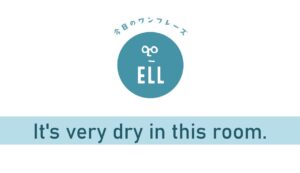
There are many reasons why bystanders don't help someone in danger, or when they see someone who needs help. There is a psychological phenomenon called the `bystander effect`. According to Psychology Today, “The bystander effect occurs when the presence of others discourages an individual from intervening in an emergency situation, against a bully, or during an assault or other crime.”
The more people present in an emergency, the less likely anyone is to help. Why? Because we assume that others will help or we assume that someone else already stepped up to help the person in the emergency. However, everyone assumes that everyone else is helping and so no one actually helps.
What should you do if you see someone in an emergency? You should ask the person if they need help, even if you think someone else is helping already.
If you cannot ask the person, if they are unconscious for example, you should ask the people around if someone has helped. If no one has helped the person, you should take charge of the situation and begin assigning people roles to help. For example, saying “you there, call an ambulance” or “you there, please help me keep people back from this injured person.”
Even if it is not an emergency, you should help if you see someone who needs help. It is surprising how many people do not act to help someone. You can make a big difference for someone by helping them. It is likely that if you do not help, no one will.
For example, last summer I saw a woman on the train who had toilet paper stuck to her face. In a train car full of people, many of whom could see her face and were looking at her, no one helped. No one was willing to tell her she had toilet paper on her face! She was well-dressed and clearly going someplace important. How would you feel if you walked into a business meeting with toilet paper stuck to your face? No one would want that humiliation! However, everyone on the train assumed that someone else would help, or thought it wasn't their responsibility.
When I saw that no one was willing to help her, I took my mirror out of my bag, went over to her, and helped her get the toilet paper off her face. She was very grateful and surprised that someone helped her.
Many people find that it is uncomfortable to ask someone if they need help. It can be embarrassing for us, or we might worry that the other person will get angry or upset at us. Sometimes, we worry that we will be blamed for the accident, that others will see us with the person and think we did something wrong. The truth is that these scenarios do not happen. Most of the time, people are grateful and glad we offered to help.
We also worry that we aren't qualified to help. We think that we don't have the skills or resources to help. However, we can’t know what the actual situation is or what the other person needs unless we ask, so we can’t know if we can help or not until then. This is just an excuse to do nothing.
The sad fact of psychology is that we humans are social, emotional creatures who crave belonging and community, but who are also programmed to do nothing when we see a situation where another needs us. It is a biological contradiction. When we see someone who needs help, our brain looks for reasons not to help.
We can reprogram this by actively asking who we can help as we go about our everyday lives. If every person in the world asked themselves, “Who can I help?” even just looking around at the people they can see around them, many of the problems of the world would be solved. Often, we think we need big changes on a global and governmental scale to make progress. However, the truth is that the world can change through individuals helping the people in front of them.
Most people are uncomfortable helping others who need help, be it others who are in dangerous situations or others who are just in embarrassing situations. However, it can be very empowering to step out of the bystander role and into the role of helping human being.
Ariel
Vocabulary
bystander (noun) - a person who is present at an event or incident but does not take part
psychological (adj.) - relating to psychology (the study of the mind and its functions)
phenomenon (noun) - a fact or situation that is observed to exist or happen
intervene (verb) - to take part in something to prevent or alter a result or course of events
contradiction (noun) - something that is opposite or very different in meaning to something else
英語学習をフルサポート!
マンツーマン&コーチングの英会話教室
























